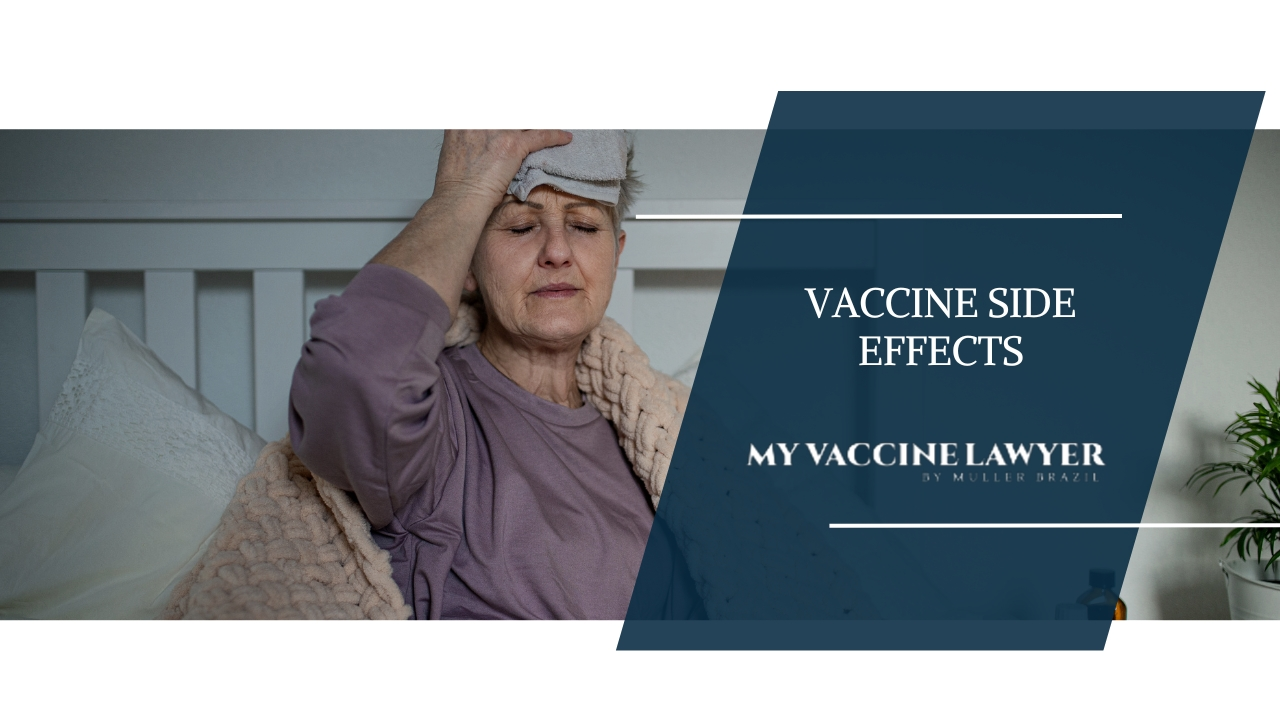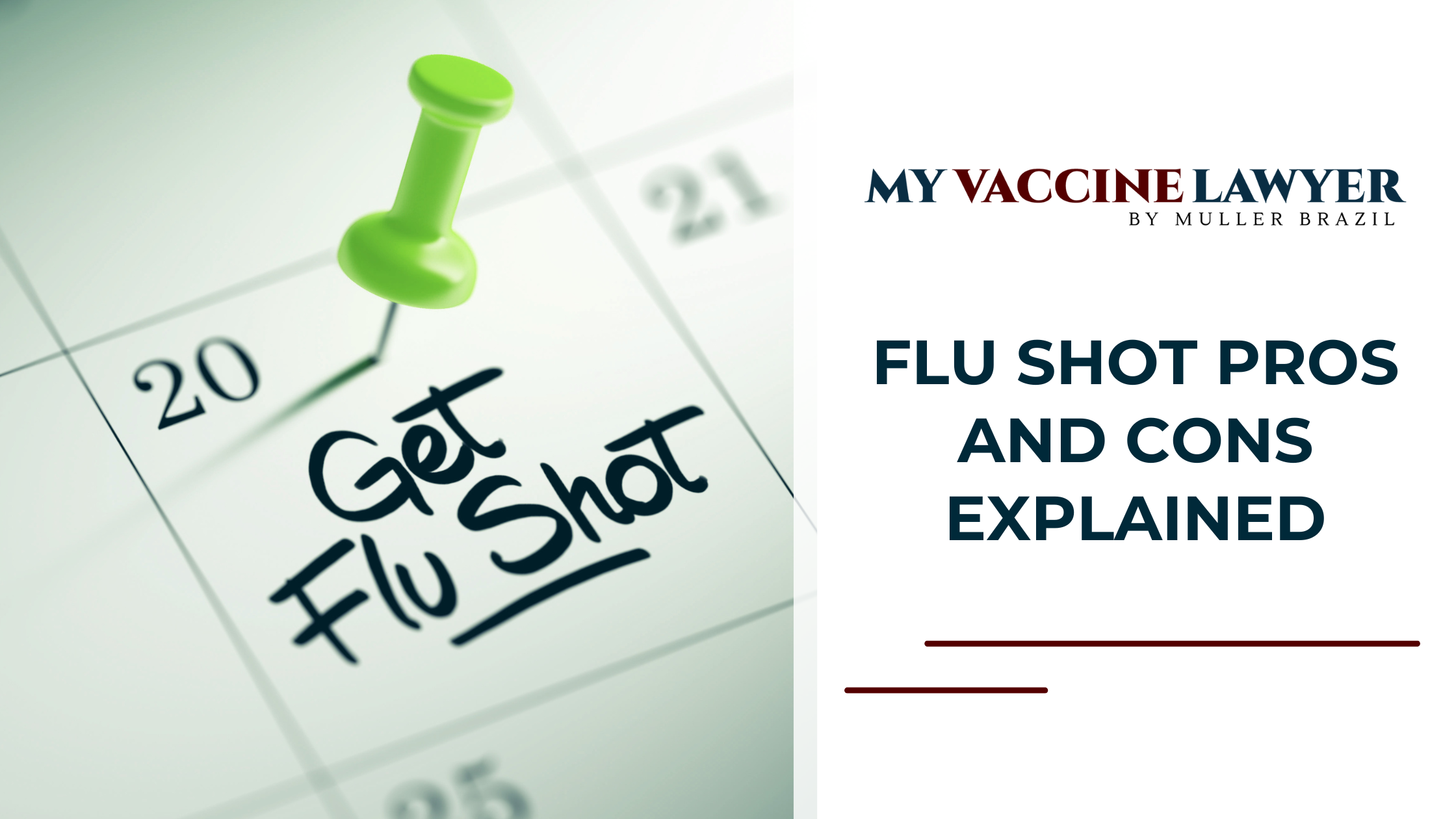Arm Hurts After Vaccine? Causes and Relief Tips
If you're feeling arm pain after a vaccine, it's common and usually not serious, often caused by your body's reaction to the vaccine which causes...
6 min read
Vaccine Injury Law Resources / Vaccines / Pneumonia Shot Pain: How Long It Lasts & When to Worry
 Paul Brazil
:
Feb 4, 2025 11:15:00 AM
Paul Brazil
:
Feb 4, 2025 11:15:00 AM
Getting a vaccine is a routine part of staying healthy, but that doesn’t mean it’s always comfortable. If you've recently received a pneumonia shot, you might be wondering: How much pain is normal?
For most people, a little soreness at the injection site is expected—it’s a sign your immune system is responding. This discomfort usually fades within a few days. But what if the pain lingers, worsens, or makes it hard to move your arm?
Not all post-shot pain is normal. In rare cases, improper vaccine administration can lead to a more serious condition, such as Shoulder Injury Related to Vaccine Administration (SIRVA), which may require medical attention or even legal action.
Understanding the difference between temporary discomfort and a vaccine-related injury can help you take the right steps for relief—and, if necessary, explore your legal options.
Pneumococcal pneumonia is a bacterial infection caused by Streptococcus pneumoniae (S. pneumoniae). It spreads through respiratory droplets from coughing, sneezing, or close contact with an infected person. While many cases are mild, pneumococcal pneumonia can lead to severe lung infections, bloodstream infections (bacteremia), and even meningitis.
This type of pneumonia is particularly dangerous for older adults, individuals with weakened immune systems, and those with chronic health conditions. It can also develop alongside other respiratory illnesses, such as the flu or COVID-19, increasing the risk of complications.
Fortunately, pneumococcal vaccines offer protection by reducing the chances of severe infection. However, like all vaccines, they come with potential side effects - including arm pain, soreness, and in rare cases, more serious adverse reactions.
Take Control of Your Injury Today
There are four types of pneumococcal vaccines, each protecting against different strains of Streptococcus pneumoniae. The right vaccine for you depends on factors like age, health conditions, and risk level.
Recommended by the CDC, these vaccines provide nasal immunity, preventing bacteria from colonizing in the nasal passages:
The pneumococcal vaccine isn’t for everyone, but certain groups are at higher risk of severe illness and complications. The CDC, following guidance from the Advisory Committee on Immunization Practices (ACIP), recommends it for:
Like most vaccines, the pneumococcal shot can cause mild to moderate side effects that typically resolve within a few days. The most common reactions include:
While severe reactions are rare, watch for signs of an allergic reaction:
Most side effects are temporary, but if symptoms persist or worsen, it’s important to consult a healthcare provider.
Shoulder pain after a pneumonia shot is a common side effect, but not all pain is normal. Mild soreness is expected, but persistent or severe pain could signal a deeper issue.
In some cases, vaccine-related shoulder pain isn’t just temporary discomfort, it could be a sign of Shoulder Injury Related to Vaccine Administration (SIRVA). This occurs when the vaccine is injected too high or too deep into the shoulder, causing:
SIRVA is a recognized vaccine-related injury and may require medical treatment, physical therapy, or even legal action if it leads to long-term complications. If your shoulder pain doesn’t improve, it’s important to seek medical advice and understand your legal options.
While most people experience only mild side effects from the pneumococcal vaccine, serious vaccine-related injuries can occur. Some individuals develop long-lasting pain or limited mobility due to improper administration or an adverse reaction.
If you’ve experienced long-term pain, mobility issues, or other complications after receiving the pneumococcal vaccine, you may be eligible for compensation through the Vaccine Injury Compensation Program (VICP). This federal program provides financial relief for individuals who suffer serious vaccine-related injuries, without requiring proof of wrongdoing by a doctor or manufacturer.
While you can file a claim on your own, working with a vaccine injury lawyer significantly improves your chances of success. The claims process involves strict deadlines, medical documentation, and legal procedures that can be difficult to navigate without experience. A lawyer can:
Because attorney fees for VICP cases are paid by the program itself, there’s no increased risk in seeking legal help. If you believe you’ve suffered a vaccine-related injury, consulting with a lawyer is the first step in understanding your rights.
The pneumococcal vaccine is an important tool in preventing serious infections, but if you have experienced lasting pain, weakness, or mobility issues after receiving the shot, it could be more than a typical side effect. While mild soreness is expected, prolonged pain may be a sign of a vaccine-related injury, such as Shoulder Injury Related to Vaccine Administration (SIRVA).
For those facing serious vaccine injuries, there is legal recourse. The Vaccine Injury Compensation Program (VICP) provides financial relief for individuals who have suffered vaccine-related injuries, covering medical bills, lost wages, and pain and suffering.
At My Vaccine Lawyer, we have helped thousands of clients recover over $120 million in settlements and verdicts. We take care of the entire VICP claim process at no cost to you, our attorney fees are paid by the program.
If you are suffering from persistent pain or complications after a pneumonia shot, do not wait to take action. Our team is here to help.
Call (800) 229-7704 or email info@myvaccinelawyer.com to schedule a free consultation.
You do not have to go through this alone. Let the nation’s top vaccine injury firm fight for the compensation you deserve.
Mild pain, redness, and swelling at the injection site typically last one to three days. However, if pain persists for weeks or worsens, it may indicate a vaccine-related injury such as Shoulder Injury Related to Vaccine Administration (SIRVA).
While most people experience only mild reactions, serious side effects are rare. In some cases, individuals may develop SIRVA, severe allergic reactions, or other complications linked to pneumococcal bacteria exposure through vaccination. If symptoms persist, seeking medical attention is recommended.
The Centers for Disease Control and Prevention (CDC) recommends the three pneumococcal conjugate vaccines (PCV15, PCV20, and PCV21) for adults 65 and older, individuals with weakened immune systems, and those with chronic health conditions. Pneumococcal vaccines help prevent invasive pneumococcal disease and related complications.
Pneumococcal vaccines work by stimulating the immune system to recognize and fight pneumococcal bacteria. They help reduce the risk of severe pneumococcal infections, including pneumonia, meningitis, and bloodstream infections.
Paul Brazil is a native of Dunmore, Pennsylvania and a graduate of Dunmore High School. For his undergraduate education, he attended Bloomsburg University where he majored in political science. He then went on to earn his JD from Widener University School of Law. Following graduation from law school, Mr. Brazil worked at a large Philadelphia civil defense firm where he litigated workers’ compensation claims and Heart and Lung Act cases. In 2012, he joined with his coworker Max Muller to form Muller Brazil.

If you're feeling arm pain after a vaccine, it's common and usually not serious, often caused by your body's reaction to the vaccine which causes...

Vaccines stand at the forefront of modern medicine, vital in protecting public health. Yet, understanding vaccine-induced side effects is equally...

The flu shot helps prevent severe illness and hospitalizations, but some people may experience mild side effects or rare complications, making an...
